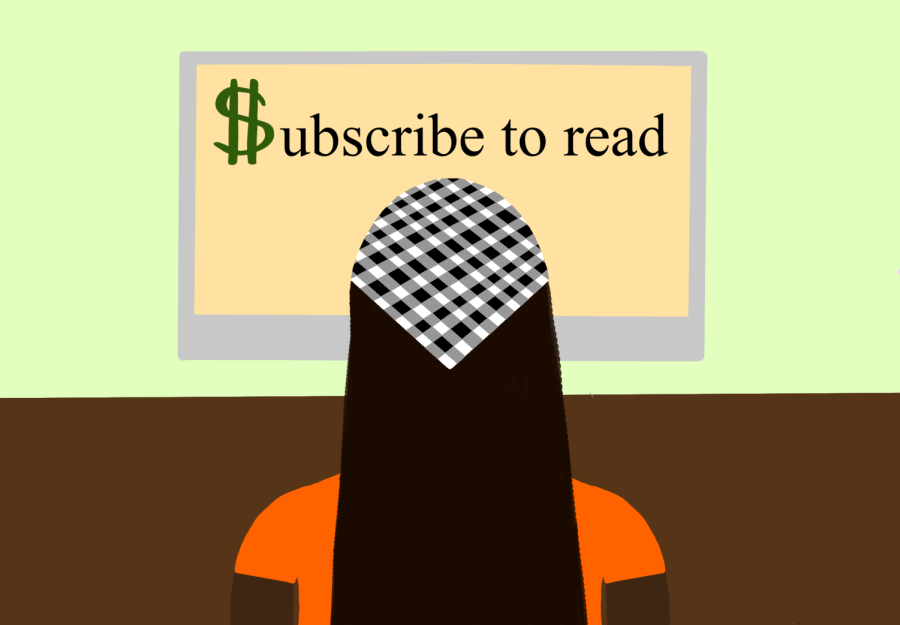Democracy dies behind paywalls
April 12, 2022
With the constantly changing social and political climate in which we live, there are arguably few things more important than news. In a landscape of mass media consumed by Twitter posts and clickbait headlines, people have to go the extra mile to seek out articles that contain accurate information. This is not the problem — the problem arises when clicking on an article about a given topic and not even having time to read the first paragraph before being met with the dreaded pop-up. One that says something along the lines of, “Subscribe to read” or “You have ‘x amount’ of free articles left.” This is a sin that the websites of many major news outlets are guilty of committing, and more than serving as an inconvenience to their potential readers, it defeats the purpose of their creation.
The purpose of these news outlets is to promote the truth; their purpose is to inform citizens about the world around them and assist them in learning how to operate within it. However, with the presence of paywalls, this information is not as easily accessible to the average person as it should be. Instead, it is mainly accessible to those who are willing to pay the subscription fee. What this is, for lack of a better word, is a blatant display of elitism. Giving news access to readers who can afford a subscription, while restricting access from those who cannot, creates a divide in terms of access to information. Allowing an elite group of people access to more information — and thus more understanding — than other people, rather than offering equal access to all citizens, is not an acceptable model of journalism.
Journalism has been a pillar of our country since its beginning; a fact that was echoed by the founding fathers when they established our nation. From war and political events, to economic crises and several other triumphs and tragedies, the media has played an integral part in every major event for centuries. The news has always been there to serve its purpose, to be a place where individuals can go to seek out legitimate, unbiased information, but that was when it was easily and equally accessible to everyone. Now, though, the news primarily serves those who can afford the fees to bypass paywalls, and it leaves those who can’t to seek out other means of obtaining news, ones that might contain misinformation. This wholeheartedly defeats the purpose of journalism, which is to provide truthful information to anyone who pursues it. By requiring people to pay for this information, it shifts journalism into something new — something that is for the few, rather than the many. Something that is written by the people, for only certain people.
News outlets that block their content with paywalls contribute to the deconstruction of the public opinion of journalism. After all, it is hard to champion a free press if it isn’t actually free. If news outlets feel that they cannot completely do away with paywalls, they should at least allow articles about breaking news — subjects like war, the climate crisis, the pandemic and the government to be free, because if not, what purpose do these outlets serve? What is the benefit of providing information to the public, if not to everyone? The header of the Washington Post reads, “Democracy dies in darkness,” and I cannot help but wonder if The Post, and other major news outlets, will realize the irony in restricting access to information. They should be aware of the fact that they are creating the very darkness they seek to avoid.







